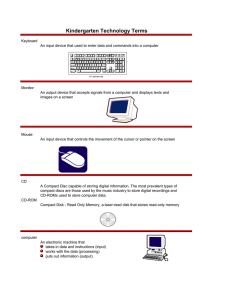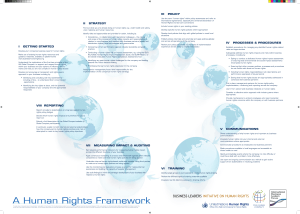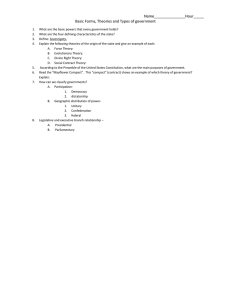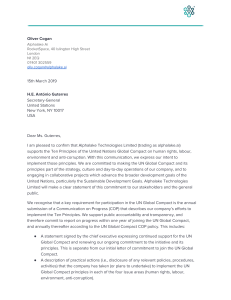The Compact has over 10,000 corporate participants and other stakeholders... countries. NAME/TITLE
advertisement
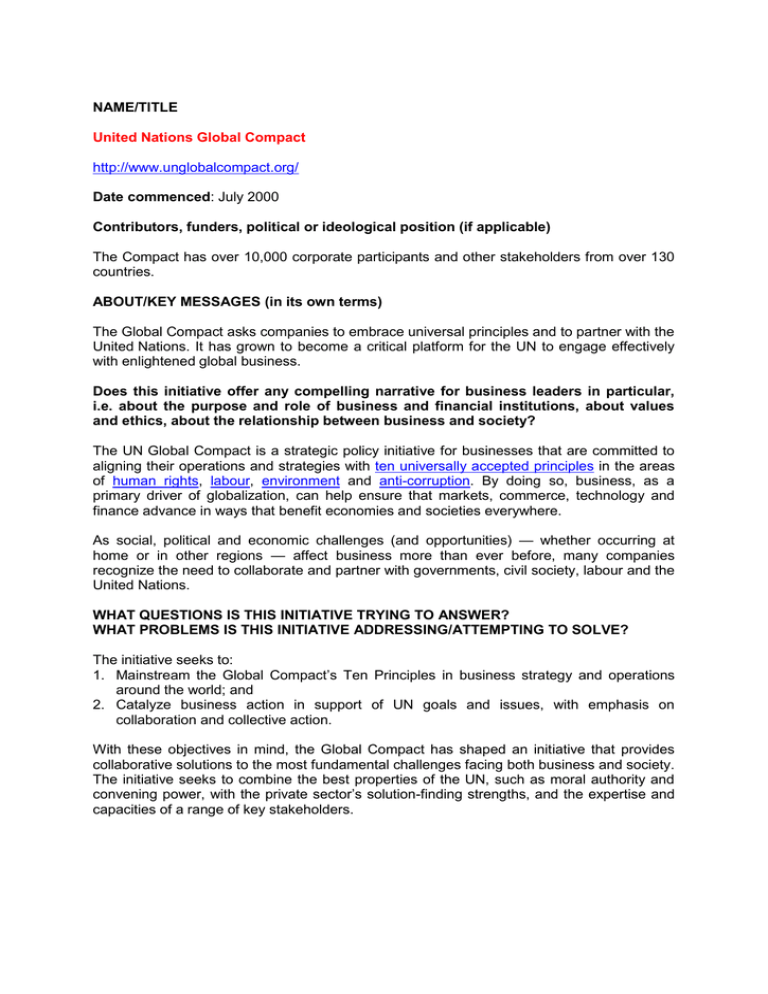
NAME/TITLE United Nations Global Compact http://www.unglobalcompact.org/ Date commenced: July 2000 Contributors, funders, political or ideological position (if applicable) The Compact has over 10,000 corporate participants and other stakeholders from over 130 countries. ABOUT/KEY MESSAGES (in its own terms) The Global Compact asks companies to embrace universal principles and to partner with the United Nations. It has grown to become a critical platform for the UN to engage effectively with enlightened global business. Does this initiative offer any compelling narrative for business leaders in particular, i.e. about the purpose and role of business and financial institutions, about values and ethics, about the relationship between business and society? The UN Global Compact is a strategic policy initiative for businesses that are committed to aligning their operations and strategies with ten universally accepted principles in the areas of human rights, labour, environment and anti-corruption. By doing so, business, as a primary driver of globalization, can help ensure that markets, commerce, technology and finance advance in ways that benefit economies and societies everywhere. As social, political and economic challenges (and opportunities) — whether occurring at home or in other regions — affect business more than ever before, many companies recognize the need to collaborate and partner with governments, civil society, labour and the United Nations. WHAT QUESTIONS IS THIS INITIATIVE TRYING TO ANSWER? WHAT PROBLEMS IS THIS INITIATIVE ADDRESSING/ATTEMPTING TO SOLVE? The initiative seeks to: 1. Mainstream the Global Compact’s Ten Principles in business strategy and operations around the world; and 2. Catalyze business action in support of UN goals and issues, with emphasis on collaboration and collective action. With these objectives in mind, the Global Compact has shaped an initiative that provides collaborative solutions to the most fundamental challenges facing both business and society. The initiative seeks to combine the best properties of the UN, such as moral authority and convening power, with the private sector’s solution-finding strengths, and the expertise and capacities of a range of key stakeholders. HOW DOES THIS INITIATIVE IMAGINE CAPITALISM WILL BE DIFFERENT IN THE FUTURE? WHAT RECOMMENDATIONS DOES THIS INITIATIVE MAKE FOR THE VARIOUS ACTORS National governments/regulators Trading corporations/business leaders/collective business institutions Investors: individuals and institutional Financial institutions International institutions Does this initiative have anything to say about major medium to long term economic and social issues Supplies of the essentials of life: Food, Water, Housing, Energy and Transport Climate change, resource depletion, loss of biodiversity Population growth and demographic change Economic growth, innovation, employment, the distribution of income and wealth The governance of business and the financial system; public trust The respective roles of government and business The respective values of economic, social and environmental capital

